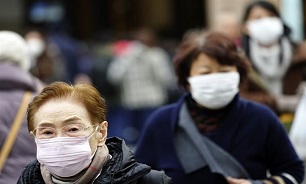China's Imported Virus Cases Spike As Fears Grow of Second Wave
 The first new case in nearly a week was also reported in Wuhan -- the epicenter where the virus emerged last year -- along with three other local infections elsewhere in the country.
The first new case in nearly a week was also reported in Wuhan -- the epicenter where the virus emerged last year -- along with three other local infections elsewhere in the country.
Seven more people died, the National Health Commission said, all in Wuhan, AFP reported.
But at 74, the imported cases confirmed Tuesday were the highest since officials started reporting the data at the beginning of March, and nearly double those reported Monday.
In recent days almost all the new infections in China have been brought in from overseas, and Beijing is growing increasingly anxious about an influx just as it appeared to be bringing the country's outbreak under control.
As nations across the globe battle to contain the pandemic, which has now killed more than 16,000 people worldwide, the tally of imported cases in China has soared to 427.
Many cities have brought in tough rules to quarantine new arrivals, and all Beijing-bound international flights are being diverted to other cities where they will be screened for the virus.
State media warned Tuesday of a second wave of infections, with the nationalistic Global Times warning on its front page that "inadequate quarantine measures" mean a second wave of infections is "highly likely, even inevitable."
There have now been over 81,000 cases in China, and the death toll has reached 3,277.
As the country tries to control imported cases, there are signs of normality beginning to return to Wuhan and the surrounding Hubei province, where some 56 million people were placed under lockdown in January.
Travel and work restrictions in the province have been gradually eased and Chinese President Xi Jinping made his first visit to Wuhan earlier this month.
Wuhan residents considered healthy can now move around the city and take public transport if they show identification, and they can also go back to work if they have a permit from their employer.
